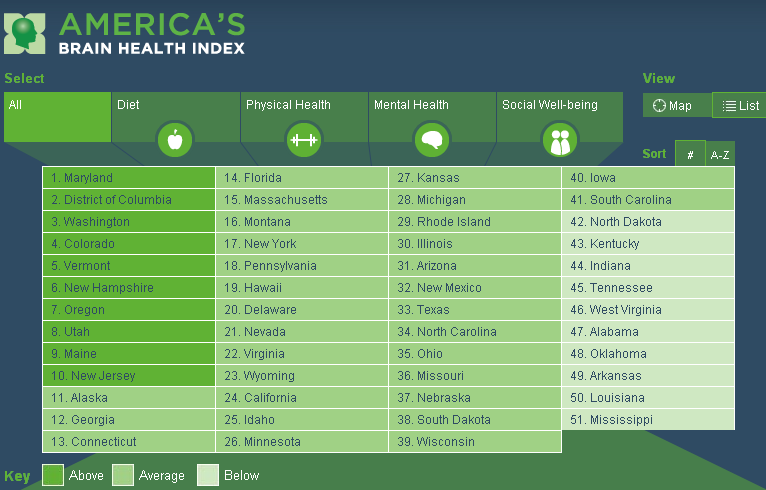Use the Latest Science to Maintain Brain Health
 Do you have an iPhone or iPad and want to lower your risk of Alzheimer’s disease or other forms of dementia? Check out the the free BrainyApp. It let’s you apply the latest neuroscience to assess your risk and develop recommendations for keeping your brain and heart healthy.
Do you have an iPhone or iPad and want to lower your risk of Alzheimer’s disease or other forms of dementia? Check out the the free BrainyApp. It let’s you apply the latest neuroscience to assess your risk and develop recommendations for keeping your brain and heart healthy.
Not surprisingly the risk factors that the app uses are related to lifestyle and include diet, smoking, blood pressure, weight exercises and lack of mental activity. And the factors work together. For example, one study found that high salt diet combined with inactivity in older adults contributed to cognitive decline.
Interested to hear from readers that have used this app or similar apps to gain insight into how lifestyle choices impact brain health.
Categories: Cognitive Decline, Lifestyle, Older Adult, Software Tags:
More than 50% of Brain Health is up to You!
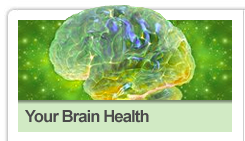 At least that is the conclusion from a review of the current state of research described on the Beautiful Minds website. The site is a educational effort by the National Center for Creative Aging and Martek Biosciences Corporation. They define brain health in terms of four dimensions:
At least that is the conclusion from a review of the current state of research described on the Beautiful Minds website. The site is a educational effort by the National Center for Creative Aging and Martek Biosciences Corporation. They define brain health in terms of four dimensions:
- The nourished mind
- The mentally engaged mind
- The socially connect mind
- The physically active mind
They have a quiz you can take to see where you stand and have even developed a brain health index for all 51 states.
As you can see Maryland is ranked #1 and Mississippi is ranked last. When you go to the site you can click on each state and get more details including an analysis of strengths and weaknesses.
All the tips they offer have been covered elsewhere on the Next Brain blog but it is useful to review them. The site also offers inspirational stories, a beautiful mind contest and resources for the healthcare professional. Check it out and let me know what is most useful.
Categories: Cognitive Decline, Diet, Lifestyle, Older Adult Tags:
Playing Scrabble Can Boost Visual Cognition 20%!
 Competitive scrabble players are able to recognize words 20% faster than non scrabble players according to new research from the University of Calgary. More importantly, they found it enhances the cognition you use to recognize words:
Competitive scrabble players are able to recognize words 20% faster than non scrabble players according to new research from the University of Calgary. More importantly, they found it enhances the cognition you use to recognize words:
“The average literate adult relies on three components to process and read a word: sound, spelling and meaning,” says Penny Pexman, professor of Psychology. “When we studied the Scrabble players, we found that there is significant flexibility in the tools they use to read words and that it can include the orientation of the word as well.”
Playing games is one well-known strategy for improving brain function and cognitive performance. Many posts on the Next Brain Blog cover the topic. Trouble is skills developed by game playing are often margin improvements and don’t transfer into new domains. That makes the finding about play Scrabble significant – 20% improvement and it transfers!
I am interested to hear from readers that are getting significant and transferable brain boosts from other games.
Categories: Lifestyle, Memory and Learning, Perception Tags: games
Combine Techniques to Double Brain Boost
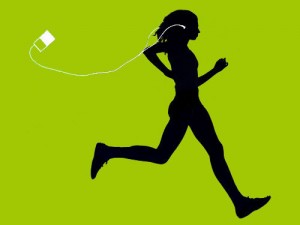 In the Next Brain blog we review techniques that hold good promise for improving brain function and cognitive performance. Many of the techniques involve lifestyle choices, for example how you eat, sleep, interact with others and exercise; others involve major development efforts such as learning to play a musical instrument, second language or how to reason critically; still others are specialized, for example neuro-feedback, brain training, mindfulness and yoga. One concern I often hear is that many techniques produce small or temporary effects. This is true. One way to combat that is to combine them for greater effect.
In the Next Brain blog we review techniques that hold good promise for improving brain function and cognitive performance. Many of the techniques involve lifestyle choices, for example how you eat, sleep, interact with others and exercise; others involve major development efforts such as learning to play a musical instrument, second language or how to reason critically; still others are specialized, for example neuro-feedback, brain training, mindfulness and yoga. One concern I often hear is that many techniques produce small or temporary effects. This is true. One way to combat that is to combine them for greater effect.
For example, researchers at Ohio State University studied the impact of combing aerobic exercise and music, two well-known brain boosters, to find:
“The improvement in verbal fluency test performance after listening to music was more than double that of the non-music condition.”
Listening to music while you workout will significantly improve your score on a standardized cognitive test. Subjects in the study that listened to the music also reported feeling better and a more positive mood.
I am looking for additional research on combination effects. If you have a reference or personal story you would like to share please reply to this blog post.
Categories: Lifestyle, Music and Audio Tags:
Build a Better Brain by Consciously Listening
The listening and sound expert Julian Treasure has an excellent 8 minute TED Talk video on why we are losing our ability to listen and what to do about it. Of special interest to readers of the Next Brain Blog are the five techniques he offers to improve your ability to listen consciously. These include:
 Actively listen to others by practicing RASA or receive, appreciate, summarize and ask questions.
Actively listen to others by practicing RASA or receive, appreciate, summarize and ask questions.- Enjoy 3 minutes of silence or quiet per day to help reset or re-calibrate your listening.
- Count the channels or sources of sound in a noisy environment. For example, walking down a city street you receive sound from a dozen sources including car horns, nearby conversation, buses and so on.
- Change your listen position by adjusting the filters that shape how you hear including for example, expectations and empathy.
- Listen to the hidden choir around you. This involves savoring ordinary sounds, for example hearing the symphony in your tumble dryer.
These five techniques are simple but practicing them will with time transform how you consciously listen. Hearing the world is a key to improved cognitive performance.
Interested to hear from readers that practice specific techniques of conscious listening. What techniques do you use? What have you heard that the rest of have not?
Categories: Lifestyle, Mental Focus, Perception, Training Tags:
Mental Training at the Edge but Not Over
 One reason video games are addictive is that the difficulty of play is automatically adjusted by how well you do. If you are scoring low the game becomes easier by dropping you down a level. Likewise if game play is too easy, the level of difficult increases and you are faced with a greater challenge. By dynamically adjusting the difficultly of play, you are always operating at “the edge of your seat” (or ability) and experience a rich sense of challenge and accomplishment.
One reason video games are addictive is that the difficulty of play is automatically adjusted by how well you do. If you are scoring low the game becomes easier by dropping you down a level. Likewise if game play is too easy, the level of difficult increases and you are faced with a greater challenge. By dynamically adjusting the difficultly of play, you are always operating at “the edge of your seat” (or ability) and experience a rich sense of challenge and accomplishment.
It seems that the same effect can improve brain training at least in older adults. Research reported by the Beckman Institute for Advance Science and Technology found that older adults stay engaged when the intellectual demands of a task optimally match their abilities. Furthermore they found that completing such tasks produced cognitive benefits.
“Stine-Morrow said that engagement in activities that are neither too easy nor too difficult, but push at the boundaries of one’s skill level, produces the highly pleasurable experience known as flow and that the experience of flow may be an important pathway through which older adults can stave off the declines in fluid ability that sometimes accompany aging.”
Intellectually challenging tasks include for example taking a class or reading. The key is to pick the one that keeps you in the optimal balance between challenge and reward. While the research is focused on older adults I suspect the effect works well at all ages.
I am interested to hear from readers that are able to brain train at the edge but not over. How do you adjust the difficulty level?
Source of Image: The Edge
Categories: Cognitive Decline, Lifestyle, Older Adult, Training Tags: experiential learning
Art Forms as Cognitive Enhancers?
 There is growing scientific evidence that experiencing art both passively and actively can improve brain function and cognitive performance. Art is used as a form of cognitive therapy with older adults and art training is advocated for children by some experts:
There is growing scientific evidence that experiencing art both passively and actively can improve brain function and cognitive performance. Art is used as a form of cognitive therapy with older adults and art training is advocated for children by some experts:
Michael Posner argues that when children find an art form that sustains their interest, the subsequent strengthening of their brains’ attention networks can improve cognition more broadly.
Experiencing art means experiencing beauty which is powerful emotive and intellectual stuff. There are many anecdotal claims that it enhances mental energy, creativity, improves focus and relieves stress.
Some readers of the Next Brain Blog (including myself) have reported success with a very simple art-based technique.
- Find an a new art form that deeply resonates with you. Mine turned out to be the work of Juri Morioka (see sample above).
- Acquire legal, affordable and high quality copies.
- Consciously experience it on a daily or frequent basis.
It is important to find a new art form, not one you have always liked. Also you may need to change the specific pieces you experience periodically to maintain the intensity of the cognitive effects.
Interested to hear from readers that use this or other art-based techniques to enhance brain function and cognitive performance.
Image source: Paintings by Juri Morioka
Categories: Child, Cognitive Decline, Cognitive Development, Lifestyle, Mental Focus, Older Adult, Perception Tags: art
Does Thinking Out Loud Boost IQ and EQ?
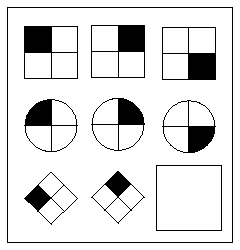 When working on a difficult problem or puzzle people will sometimes begin to mutter or even talk out loud. When trying to resist a tempting piece of chocolate cake or deal with an emotional issue we can coach ourselves with positive self talk that sometimes happens aloud.
When working on a difficult problem or puzzle people will sometimes begin to mutter or even talk out loud. When trying to resist a tempting piece of chocolate cake or deal with an emotional issue we can coach ourselves with positive self talk that sometimes happens aloud.
Can talking to yourself out loud make you a better problems solver or more emotionally intelligent?
Common practice says yes. Unfortunately, it is not very clear on when the technique might work. Plus there is no scientific evidence to back the idea up, until now.
Came across a unique study, How to Gain Eleven IQ Points in Ten Minutes, that found talking aloud can help in some circumstances. The key finding:
“… older adults performed significantly better only on the Raven’s Matrices while thinking aloud. Performance gains on this task were substantial (d = 0.73 and 0.92 in Experiments 1 and 2, respectively), corresponding to a fluid intelligence increase of nearly one standard deviation.”
Raven’s Matrices are used as a test for general or fluid intelligence. An example question is shown to the above.
Also of interest are the negative findings:
- No improvements were shown by younger adults
- Older adults did not show improvement on other cognitive tasks such as memory tests, perceptual tests, solving puzzles and so on.
More research is needed but the positive finding is so strong it is worth considering as part of your Next Brain development efforts.
Interested to hear from readers that use talk aloud strategies to improve brain function and cognitive performance.
Source of Image: Wikipedia
Categories: IQ and EQ, Lifestyle, Older Adult Tags:
10 Proven Ways the Body can Boost the Brain
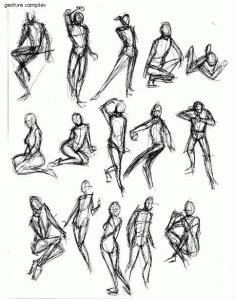 How we use our bodies influences brain function and cognitive performance. Walking around to think out problems, gesturing with your hands to articulate a a complex point, smiling to feel happy, playing catch for a study break to enhance learning, taking a nap to supercharge problem solving and many other simple behaviors have scientific backing.
How we use our bodies influences brain function and cognitive performance. Walking around to think out problems, gesturing with your hands to articulate a a complex point, smiling to feel happy, playing catch for a study break to enhance learning, taking a nap to supercharge problem solving and many other simple behaviors have scientific backing.
Found a post on the PsyBlog, 10 Simple Postures That Boost Performance, that summarizes this effect well. The author tells you specifically what to do, why it works and then in some cases provides a link to a scientific study that backs it up.
This is a great way to get started in using your body to boost your brain. Don’t expect instant results. It takes some time and practice. You may want to read the supporting articles to get the details.
Very interested to hear from readers that use simple body-based techniques to improve cognitive performance.
Image Source: Blazedent
Categories: Lifestyle, Memory and Learning, Problem Solving Tags: embodied cognition
Vastly Improve Mental Focus By Switching
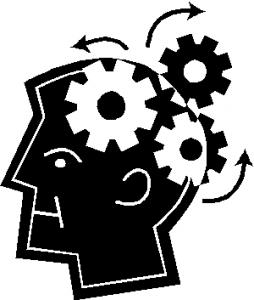 Prolonging mental focus is not about taking a rest break but momentarily switching to a task to get a jolt of mental energy or novelty.
Prolonging mental focus is not about taking a rest break but momentarily switching to a task to get a jolt of mental energy or novelty.
Staying focused on a specific task or topic can be difficult. Called vigilance or our ability to “keep watch” it is vitally important for top mental performance in any field. As such we will cover scientific studies on how to improve mental focus and vigilance on the Next Brain Blog.
For example, new research from University of Illinois reported in the journal Cognition found that brief diversions from a task actually vastly improves your mental focus. While we all know you need to take breaks to stay fresh, this finding is different.
Test subjects in this study memorized four digits (four different numbers each less than 10) before taking on a different mental task for 50 minutes. Subjects were told to signal if they saw one of the digits flash on the computer screen they were working with. Some of the test subjects were shown digits during work on the 50-minute task (called the switch group) others were not. There was also a control group that knew nothing about the digits but saw them during the task. Here is what they found:
“As expected, most participants’ performance declined significantly over the course of the task. But critically, Lleras said, those in the switch group saw no drop in their performance over time”.
The brief diversions rather than hurting mental focus provides the novelty that we need to stay focus. We lose mental focus when nothing changes. We get bored and details fad into the background.
Note the switch group did not take a five minute break, they did not even take a 1 minute break. It is not about resting. It is about getting a small jolt of mental energy or novelty.
You can improve cognitive performance on long tasks by momentarily switching to tasks that provide a small dash of mental novelty. Interested to hear from readers that use this technique. What small diversions or switching tasks do you use?
Categories: Executive Function, Lifestyle, Mental Focus Tags: mental energy

